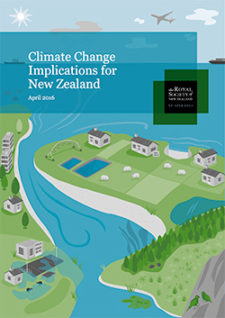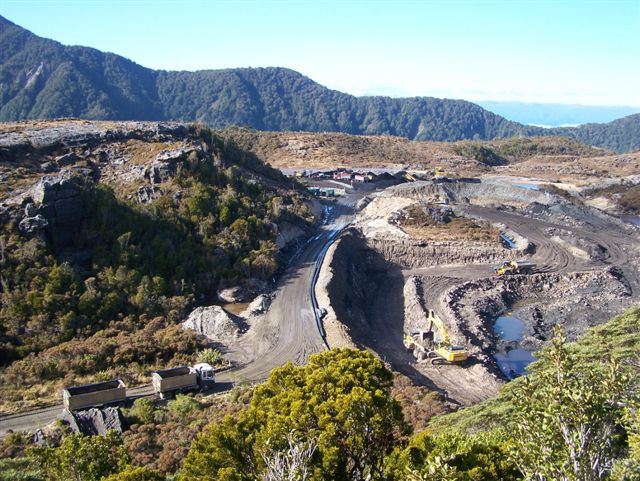
In which Jack Tame conducts the toughest interview ever with a New Zealand Minister for Climate Change and Paula Bennett ends up denying that the Government cheated on its climate change commitments.
Minister for Climate Change Paula Bennett has just been in New York signing the UN Paris Agreement. While in New York, Bennett was interviewed by TV One USA correspondent and general nice guy Jack Tame for Television NZ’s Q + A news show. You can read a full transcript.
I wonder if Paula Bennett thought she would get a soft jokey interview with that nice young man Jack Tame. She certainly didn’t. Tame takes the interview 110% seriously. He does not smile. He delivers his questions and his interruptions through a taught stone-face. And his questions are good questions.
We perhaps need to remember about a year ago, Jack Tame stood in for Mike Hosking on ‘Mike’s Minute’ and gave us a month of refreshingly different short pieces to camera. In that month, Jack Tame talked about climate change. And he concluded with a minute titled climate tipping points. So Tame takes climate change and climate change policy seriously.
Tame gives Bennett a couple of minutes to gush enthusiastically about the signing of the Paris Agreement. Then he cuts straight to the Morgan Foundation’s Climate Cheats report which alleges that the New Zealand Government was complicit in allowing dubious international carbon credits (Russian and Ukrainian and emission reduction units or ‘ERUs’) into the New Zealand Emissions Trading Scheme.
Continue reading “NZ uses dodgy Ukrainian carbon credits, minister in denial”

 This is the biggest new coal burning project in the country, with the hearing happening just as our Minister for Climate Change is about to travel to New York to sign the Paris agreement where we undertook to reduce our greenhouse emissions a totally inadequate 11% below 1990 levels. (It’s even more inadequate when
This is the biggest new coal burning project in the country, with the hearing happening just as our Minister for Climate Change is about to travel to New York to sign the Paris agreement where we undertook to reduce our greenhouse emissions a totally inadequate 11% below 1990 levels. (It’s even more inadequate when 

 Simon Johnson looks at ‘fix the ETS’ metaphors and argues that trying to incrementally ‘save’ or ‘fix’ the NZ Emissions Trading Scheme will ensure it remains ineffective in reducing domestic emissions for decades. Politically, its just flogging the dead horse. We don’t have time for a unending institutionalised cultural conflict over ‘fixing the NZETS’ like the one we have had for ‘fixing’ the Resource Management Act.
Simon Johnson looks at ‘fix the ETS’ metaphors and argues that trying to incrementally ‘save’ or ‘fix’ the NZ Emissions Trading Scheme will ensure it remains ineffective in reducing domestic emissions for decades. Politically, its just flogging the dead horse. We don’t have time for a unending institutionalised cultural conflict over ‘fixing the NZETS’ like the one we have had for ‘fixing’ the Resource Management Act.
You must be logged in to post a comment.